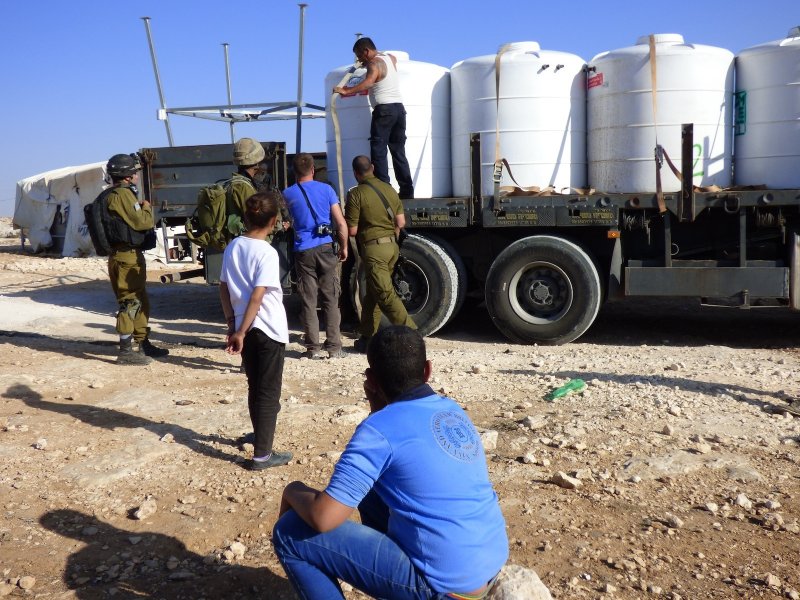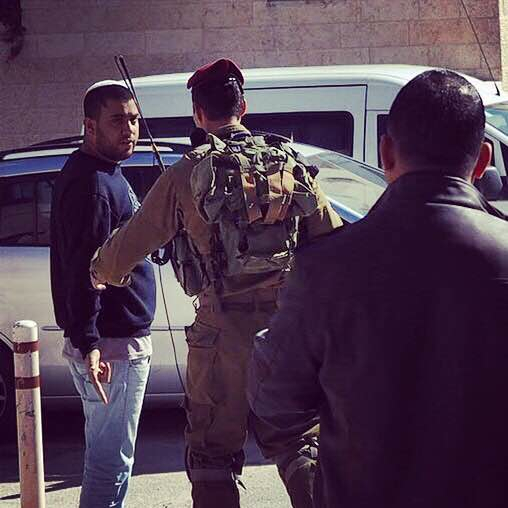Category: Hebron
-
Israeli forces seize a tractor, its truck, four water tanks, and three bases from Susiya village
22nd November 2014 | Operation Dove | Susiya, Occupied Palestine On November 20th, the Israeli forces seized a tractor, its truck, four water tanks and three tanks’ bases from the Palestinian village of Susiya. In the early morning DCO [District Coordination Office] officers approached the Palestinian village to take pictures of the ongoing works to install…
-
Armed settler invades schoolyard in Hebron
20th November 2014 | International Solidarity Movement, Khalil team | Hebron, Occupied Palestine Yesterday, at approximately 11:00 in al-Khalil (Hebron) a settler from a nearby illegal settlement approached the Qurtuba school in H2 with a gun [H2 is the area of Hebron under Israeli military civil and security control]. The settler entered the school grounds, terrifying the…
-
Two Palestinian youths arrested in Hebron
20th November 2014 | International Solidarity Movement, Khalil team | Hebron, Occupied Palestine Late yesterday afternoon in Hebron, Israeli forces arrested two Palestinian youths, 15-year-old Ahmed Alazeh and 21-year-old Dea’a Abu Dawoud. A local Palestinian contact reported to ISM that Alazeh was charged with throwing stones at soldiers, while Abu Dawoud was arrested after saying to soldiers at the…



